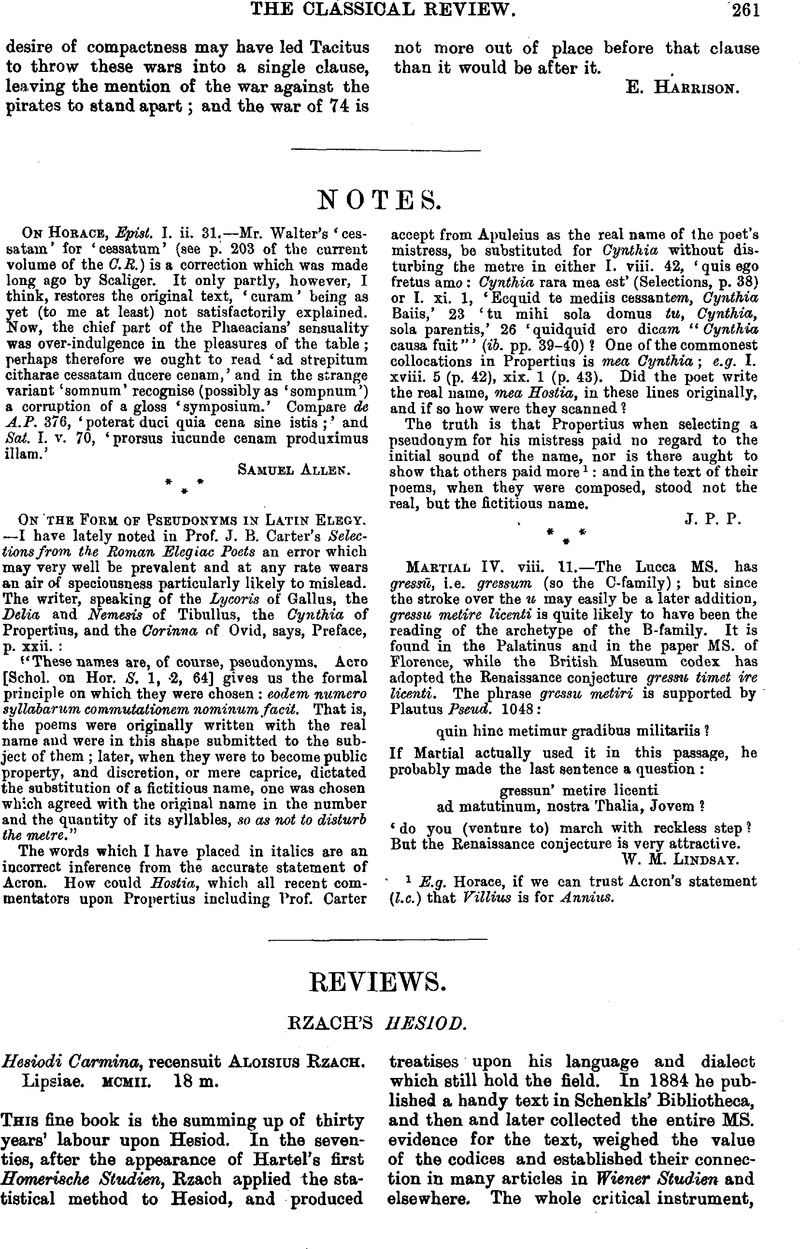No CrossRef data available.
Published online by Cambridge University Press: 27 October 2009

page 262 note 1 Or Hiller who (Rh Mus. 42. 321) thinks the similar autobiographical passage in the hymn to Apollo may be a later addition, to support the attribution of the hymn to Homer. This is philological anthropomorphism; they do not hesitate et bona dis ex hac scelerata ducere pulpa. Because they think personal references undignified in epos, they will not allow an epic poet to be personal. But there are signs that this is a pure anachronism; cf. the well-known fragment Hes. 265 ![]() and the question and answer between Homer and Hesiod at Chalcis which Plutarch (Conv. Sept. Sap. 10) gives on the authority of Lescher. It is mere supererogation ι∘ invent ‘Leschem qnendam, non anti-quum Pyrrhaeum sed mnlto recentiorem’ here (Göttling ed. p. xxviii.) and not to recognise the author of the Little Iliad, speaking of course as Homer.
and the question and answer between Homer and Hesiod at Chalcis which Plutarch (Conv. Sept. Sap. 10) gives on the authority of Lescher. It is mere supererogation ι∘ invent ‘Leschem qnendam, non anti-quum Pyrrhaeum sed mnlto recentiorem’ here (Göttling ed. p. xxviii.) and not to recognise the author of the Little Iliad, speaking of course as Homer.